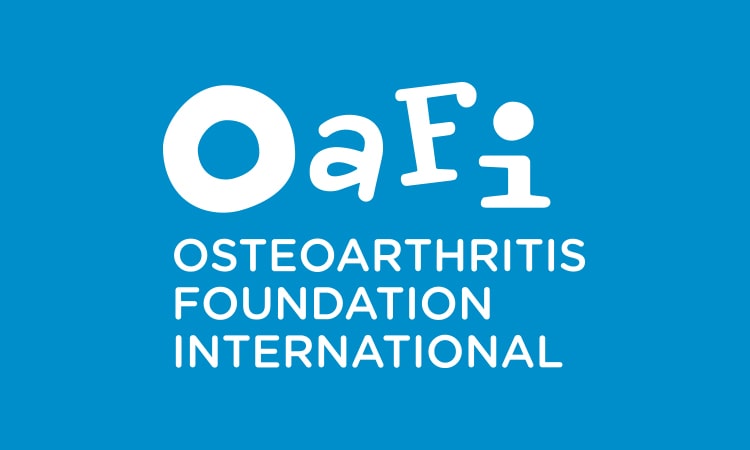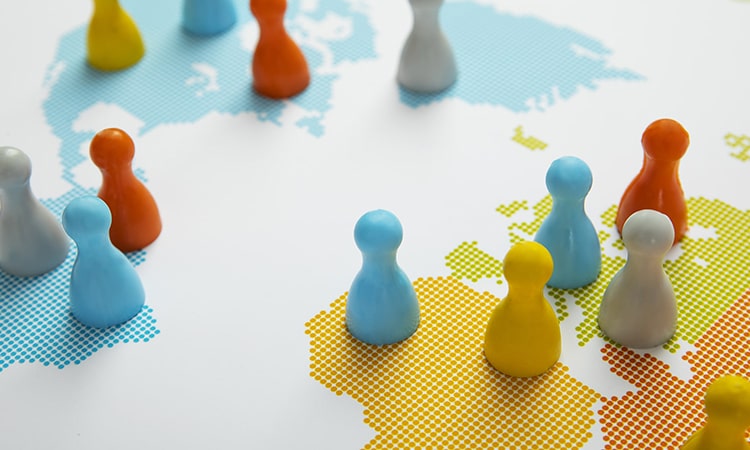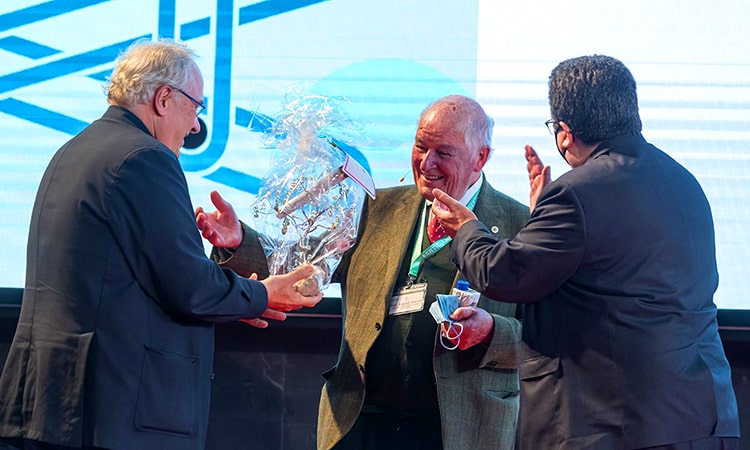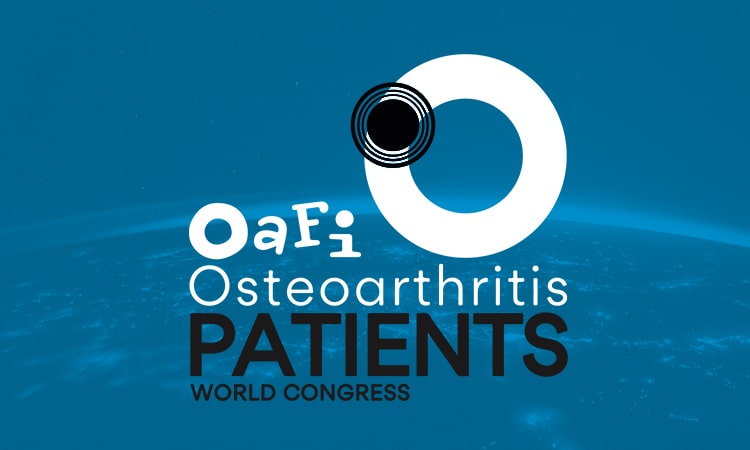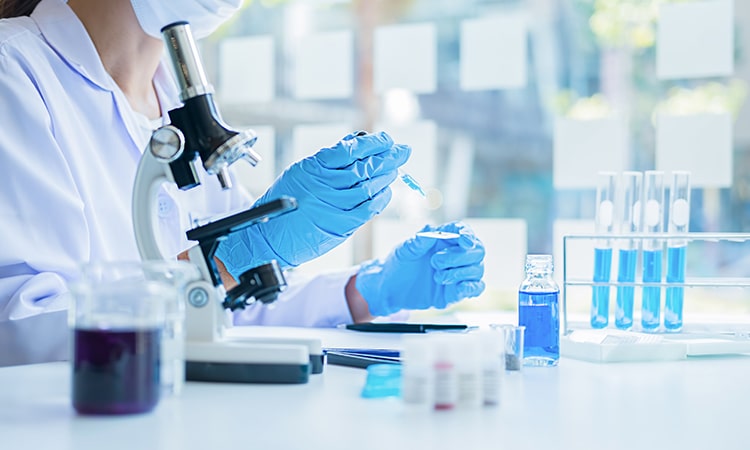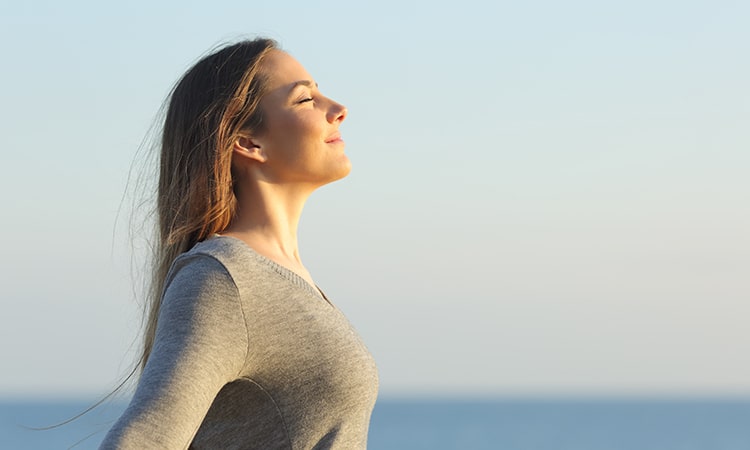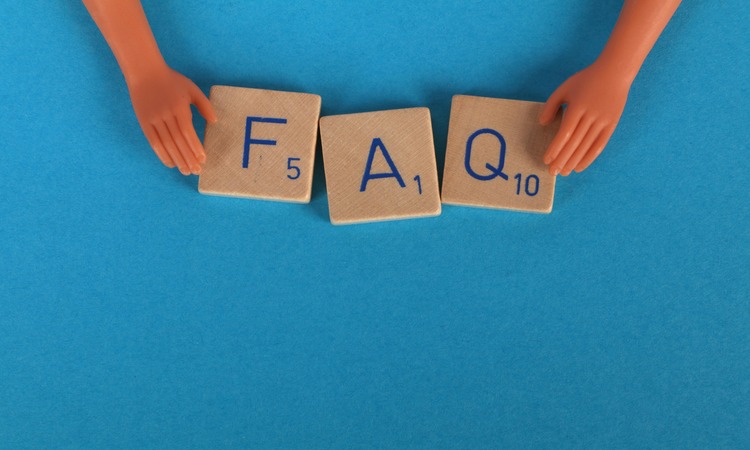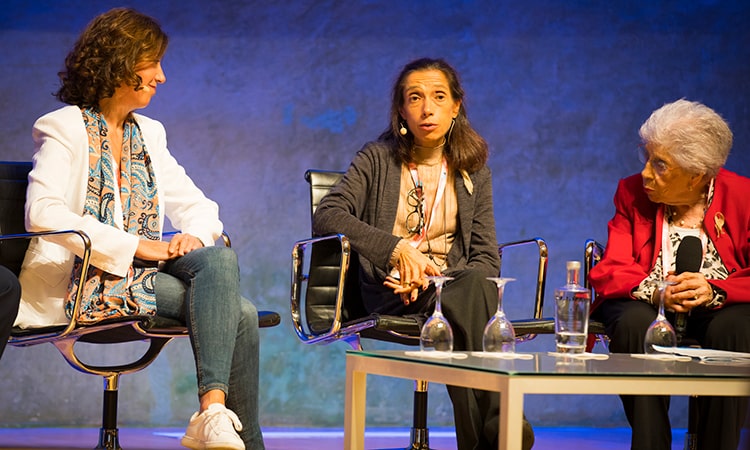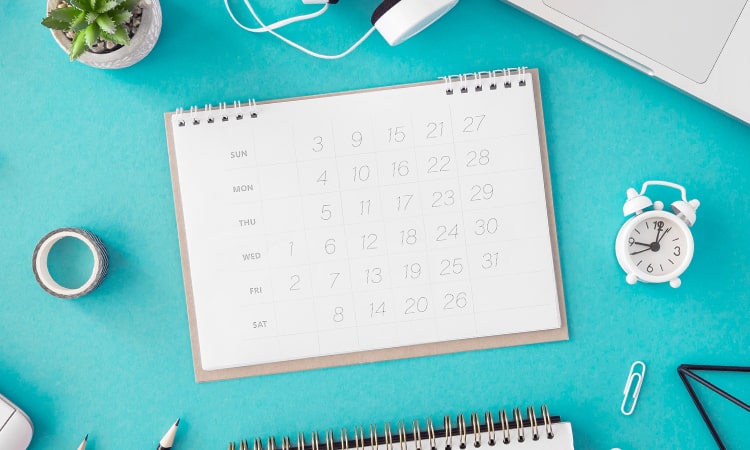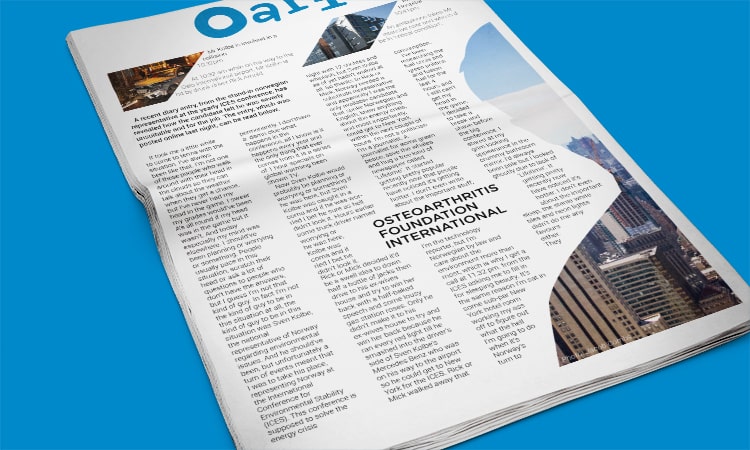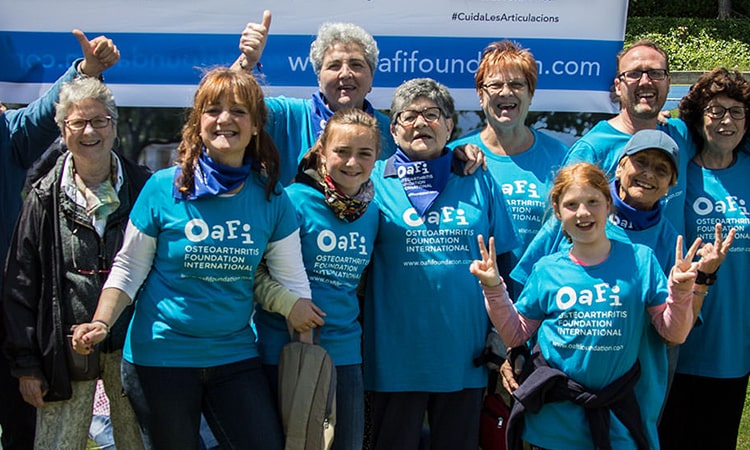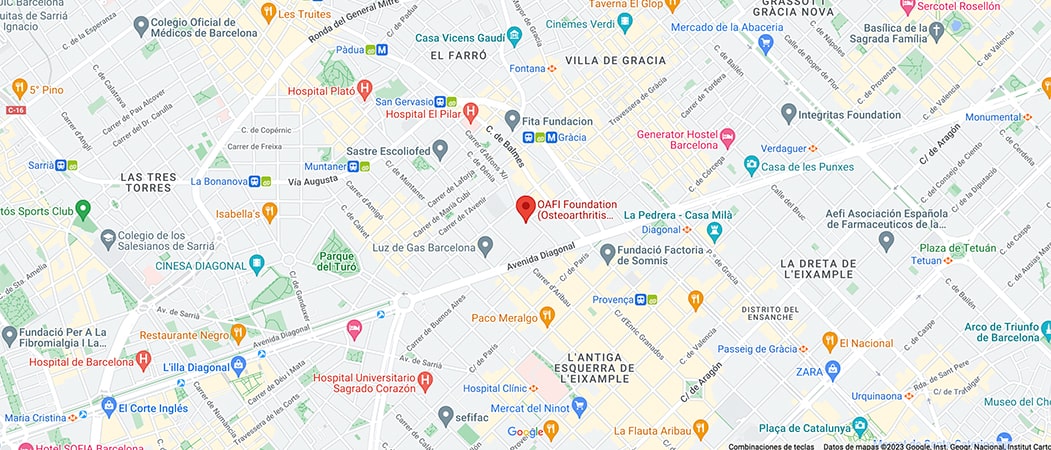- Foundation
- Actions
- Osteoarthritis
- Actuality
- OAFI Radio/TV
- Get Involved
- Contact
OAFI
Osteoarthritis International FoundationC/ Tuset, 19 · 3º 2ª
08006 Barcelona
(+34) 931 594 015
info@oafifoundation.comSchedule:
Monday-Thursday 9AM-6PM
Friday 8AM-3PM
-

-

-

Media focus on Pope’s relationship with OAFI
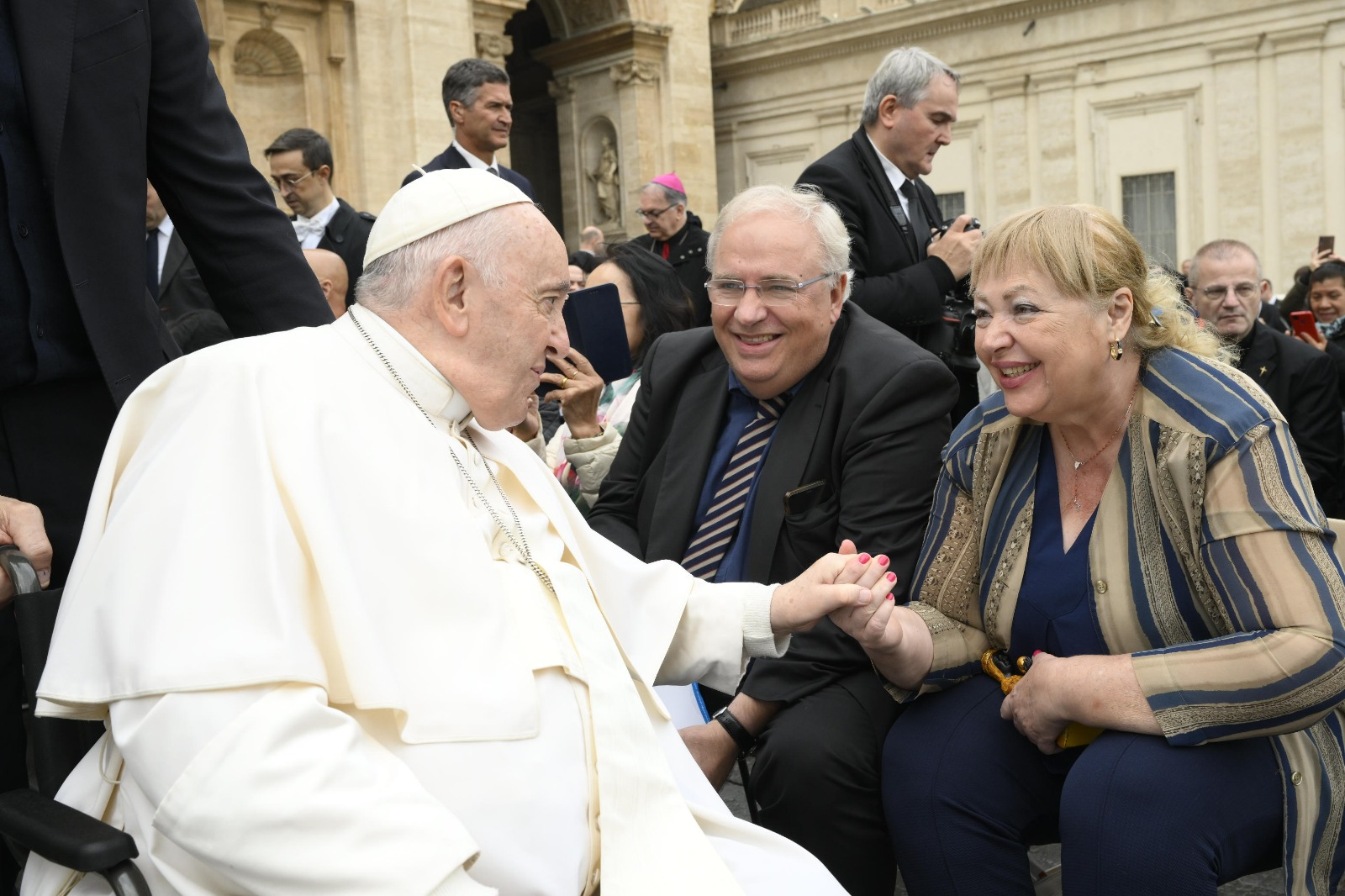
- Pope’s death brings to light his OA problems
- The media echoes Dr. Vergés’ role in the Pope’s ailments and their personal relationship
The media echoes the role of Dr. Vergés in the Pope’s ailments and his personal relationshipThis week saw the death of the Holy Father Francis, at the age of 88. As could not be otherwise, the news has had worldwide repercussions. As the days have passed, the media have echoed some of the passages of the Pontiff’s life, as well as some of the ailments he was blamed for in recent years. Among them, the Holy Father suffered from knee problems, and this is where Dr. Vergés formed part of the advisory board to help the Pope’s mobility.
The following is a reproduction of the interview conducted by the journalist Jordi Basté, on the programme El Món a RAC1.
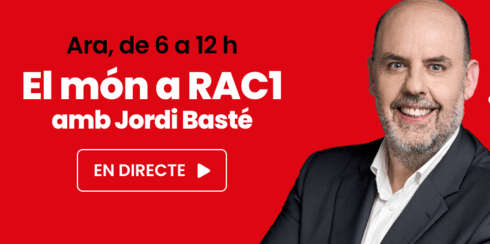
Click here to reproduce the interview in RAC1 (Catalan)
The Pope and his relationship with Dr. Vergés and OAFI
La Razón Newspaper, has published an interview with Dr. Vergés in which he explains the chronology of his relationship with Pope Francis. Below, we reproduce the interview conducted by journalist Belén Tobalina.
ARTICLE PUBLISHED ON 25-4-2025
The Pope’s ailments were well known. He was missing part of one of his lungs, during the pandemic he had to have part of his colon removed, and to all this must be added his knee and hip problems, for which he appeared for the first time in a wheelchair on 22 May 2022. Dr Josep Vergés, president of the International Osteoarthritis Foundation (OAFI), is well aware of these latest ‘leaks’.
He is the Spanish doctor who treated Francis for his joint pain, an honour he wanted to keep secret until the Holy Father’s death last Monday, and which he revealed off the record and in confidence some time ago when he revealed that the Pontiff had given him a rosary as a gift.
Josep, now that the Holy Father has sadly passed away, we can say that you were the Spanish doctor who treated Francis for his knee.
Well, I was there as a consultant. He had his medical team, which was of an excellent standard, but yes, I was the one who treated him for his osteoarthritis. I contacted him more than two years ago. The OAFI Foundation is not for profit and among the patients we visit we have a religious group and we started to visit nuns, like those in Teresa of Calcutta’s residence, and priests who, because of their osteoarthritis, cannot kneel.
It is not that the foundation is religious, it is secular, but it is part of our philosophy to attend to all those who need it, regardless of their beliefs. But to return to the subject, one day when I was talking to Cardinal Juan José Omella, Archbishop of Barcelona, he told me that the Holy Father had this problem and that he would like me to come and visit him.
The first meeting we had was with Dr. José María Villalón, head of the medical team at Club Atlético de Madrid, and Dr. Ingrid Moller, a rheumatologist. The three of us went to put ourselves at the disposal of the Holy Father thanks to Monsignor Omella and Monsignor Bernardito Cleopas Auza, the nuncio of His Holiness. At that meeting in the Vatican we made a kiss and from that moment on, after explaining to him what we were doing in the foundation, I began to interact with him confidentially. I treated him as a consultant, because he had his own geriatrician.
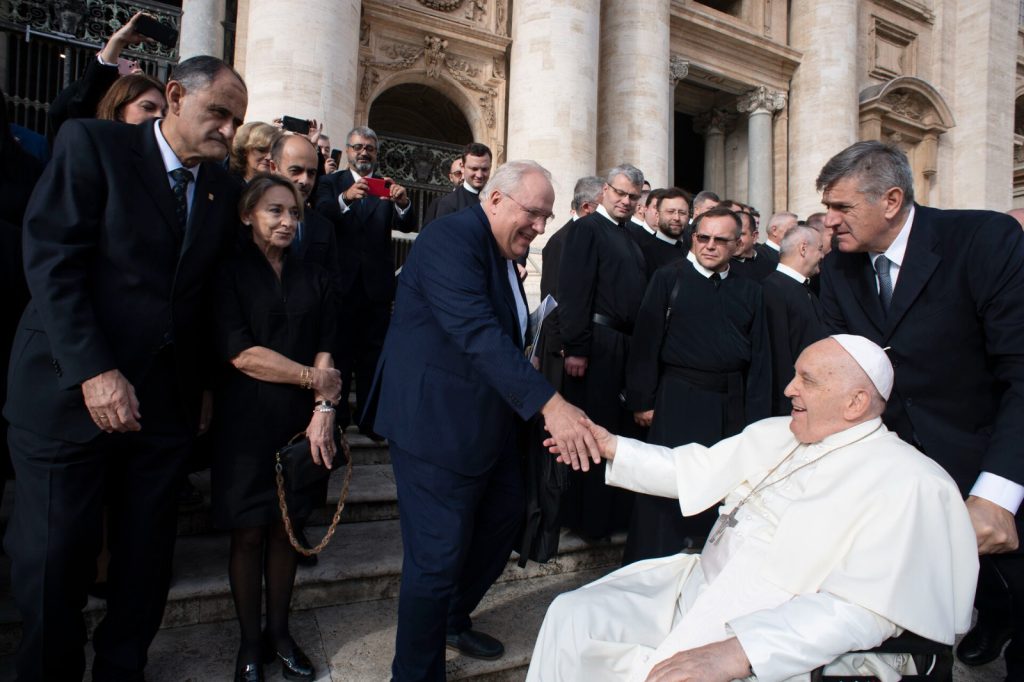
It is known that he had osteoarthritis. But can you tell us any details?
He had significant pain and mobility difficulties due to osteoarthritis. But I can’t tell you much more to respect doctor-patient confidentiality, except that he improved to the point where he could even walk indoors and the pain went away and he started to walk with a cane. We improved his quality of life a lot.
Do you remember your first encounter with him?
The day I went and was with him in St. Peter’s Square, Francis said in public that OAFI, a foundation that deals with osteoarthritis, was present. It gave me goose bumps that he said that in St Peter’s Square. It was a nice touch. Afterwards, the kissing ceremony took place. It was then that Maria Teresa, the director of OAFI’s patient area, told the Holy Father that we were concerned about the people who suffer from this pathology.
And the Pope told her: ‘You are going to explain it to me who suffer from this disease’. He also spoke about football with Dr Villalón. We went back to Spain and agreed on what treatment the Holy Father should follow. We spoke to the physiotherapist who was treating him, and we discussed the issue of diet and weight. He told me about his problems and from there we told him what he had to do to improve.
At the second appointment, approximately three months after the first and second, he was very interested in OAFI. He liked the programme of the religious very much and he himself said: “Vergés, what do you need? He was happy because his pain was much improved, so much so that he was even in favour of becoming an OAFI ambassador.
What was Pope Francis as a patient?
Very good. Very affable. The pain did not allow him to go about his life and when he got much better, considering the advanced process he had, he was happy.
Did he complain a lot?
No, I was not a complainer. I was a person who endured pain. He endured pain.
“Francisco was in pain. At first, when I saw him, he didn’t complain. But the Pontiff’s face was in pain”.
Josep Vergés, OAFI’s president
But was the Pontiff letting you know?
No, at first when I saw him he didn’t complain, but his face was in pain. Then there was a nice anecdote when the Spanish Society of Primary Care Doctors (Semergen) was celebrating its 50th anniversary and they asked me to kiss him and Cardinal Omella arranged for them to see the Pope. The kissing is usually between three or four people, because he received us all and there were more than 60 of us. I told him: ‘Here you have a representation of Spanish doctors who have made a great effort with the issue of covid’. It was nice of him to see the whole group.
But tell me an anecdote, something the Holy Father always told you, for example, or a joke he made.
He always told me to pray for him. He also told me that he didn’t want to have surgery because he only had one lung. I never asked him why he didn’t want to have surgery, I understand that, to be honest. And about the diet he told me: ‘You do what you want, but don’t take lentils and chickpeas away from me, I’m a spoon-foodie’. He was very fond of cooking. Oh, and he also said to me: ‘What about you?’ Hahaha. ‘I was taken by another doctor’, I jokingly replied, and he laughed a lot.
And how are you doing?
I have lost weight, but I have to lose more. The Pope lost weight and improved a lot. He walked in his quarters, he walked and supported himself well, but as he got older, the problem got worse. In any case, we took away the pain and his joint mobility improved a lot. I’m very proud of that, Francisco improved both his hip and his knee.
Of all the pain he had, which was the worst?
He didn’t tell me, but I could see the position to avoid the pain. He didn’t need to tell me. He was so clever that he immediately understood that osteoarthritis was an unglamorous disease and that it was difficult for us to have ambassadors. He suffered and understood how others suffered.
In addition to the Pontiff, does OAFI serve any members of the Curia or the Vatican State itself?
We had people close to the Pope, in the Vatican, who sometimes asked us for scientific medical support for the diplomatic corps. And we supported patients who came from the Vatican to Barcelona. We were already known to him and to the Curia. But come on, this is what we do with everyone. As we do in Madrid and Barcelona with the solidarity clinic, anyone with pain can come and see if we can help them.
How would you define the Pope?
He was a good, humble person. Francis was very clear about his mission. He had to deal with a lot of internal problems that he encountered. When someone was against him on something he was clear about, he did not compromise because his ideas were clear, he was very stubborn. He was also very polite and a very good person. On the international level, he did not like wars or poor people. The issue of Ukraine and Israel bothered him.
At his first visit, Francis gave him a rosary. Remind me what he was like
It is a simple rosary with a small papal anagram. He had several and gave one to me and another to the head of the patient and volunteer area. In life I have had many satisfactions and this, having been able to relieve the Pope’s pain, has been one of them.
Do you believe?
I am a believer and lately a number of things have happened to me that I think there is something there. My mother was very Catholic. And this dealings with the Pope have brought me closer to God. At the kissing ceremony, which was from 8 to 11 in the morning, I remember that it was supposed to rain a lot. If it had rained, they would have cancelled it, because the Pope suffered a lot seeing people getting wet or cold waiting for the kissing ceremony. At 8 o’clock it stopped raining and at 11 o’clock when the ceremony was over it was pouring. For me it was partly due to my mother, who was a great believer, I don’t know? I only have words of thanks for him and for all the people around him.
